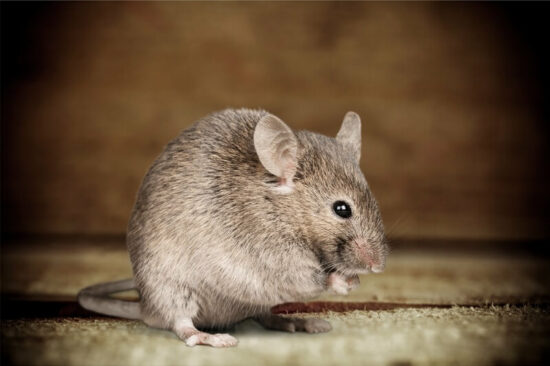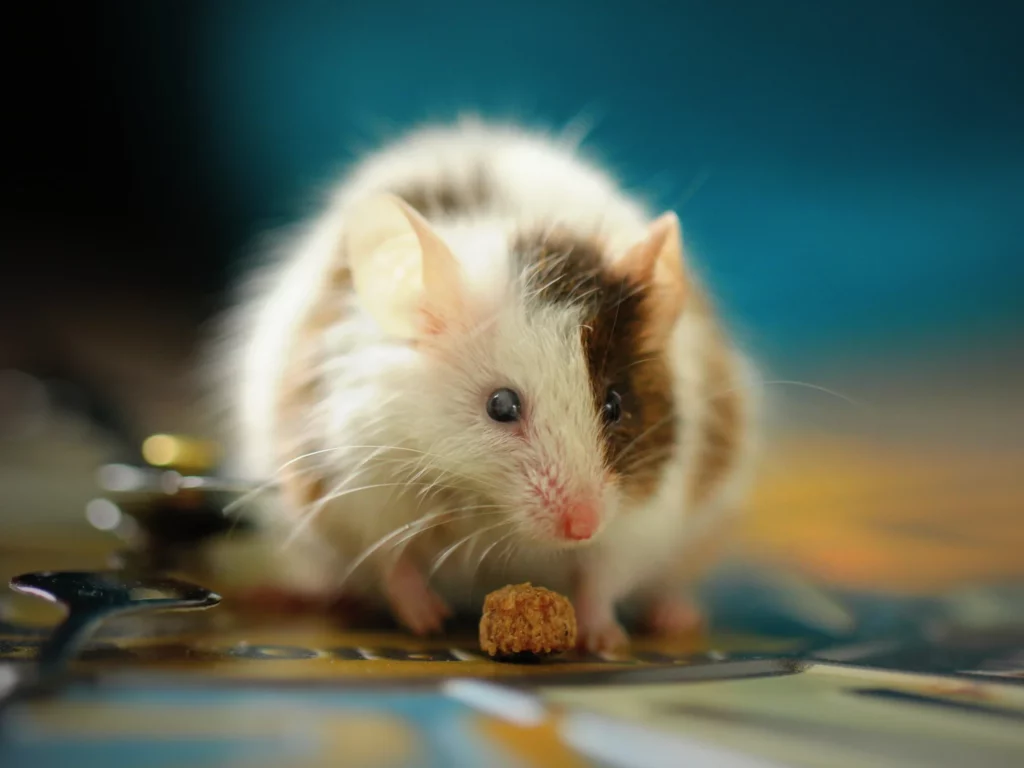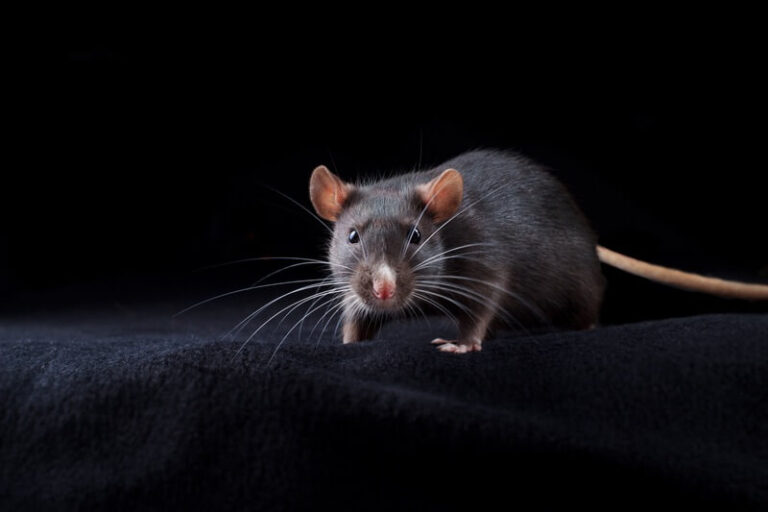Have you ever been in bed, maybe with a nightlight on, wondering if it helps keep mice away? I sure have. One night, I was all snuggled up, and the soft light from my lamp got me thinking: does it also scare off those tiny, sneaky mice? It’s a funny thought, right?
Sleeping with lights on won’t always keep mice away. Mice are active at night, and they can get used to light. Whether it works depends on factors like how bright the light is and the mice in your area.
If you want to stop mice, it’s better to use other methods too. You can block the holes they use to get in, keep your place clean, and use traps if needed. That’s a better plan to keep those little critters away.
Are Mice Fear Of Light?
Firstly, mice are creatures of the night. They come out when it’s dark, so it might seem like they avoid bright places. You’ve probably seen mice run away when you suddenly turn on the lights in a dark room. But are they afraid of the light, or is it just a reaction to the sudden brightness?
In reality, mice don’t really fear light itself. Instead, they don’t like sudden changes in their surroundings, especially when it gets really bright all of a sudden. When a dark place suddenly becomes very bright, mice might think something’s not right. So, they tend to hide or find shelter. That’s why they seem to run away when the lights go on.
Moreover, this doesn’t mean that mice will stay away if you keep the lights on all the time. They can get used to gradual changes in light, and after a while, they might not react as strongly to constant light. Some studies even show that mice can move around in well-lit areas if they have a good reason, like finding food.
What Factors Influencing Mice Behavior?

Mice’s behavior is not solely determined by the presence of light; it’s influenced by a combination of factors.
Food Availability: One of the primary drivers of mice behavior is the availability of food. Mice are opportunistic feeders and can be attracted to your bedroom if there are accessible food sources. This includes crumbs, food residues, and open containers. Their quest for sustenance can override their aversion to light.
Shelter and Nesting Sites: Mice are constantly seeking shelter and safe nesting sites, especially if they’re pregnant or raising young. If your bedroom offers easy access to cozy hiding spots, mice may brave the light to secure a safe haven.
Environmental Conditions: Factors like temperature and weather conditions can influence mice behavior. In extreme cold or harsh weather, mice may be more willing to tolerate light if it means finding a warm and secure location.
Species Variation: Different species of mice may exhibit varying behaviors in response to light. Some species may be more sensitive to light than others, but this can also vary within a single species.
Habituation: Mice can become habituated to their environment, including light levels. Over time, they may adapt to the presence of light if they find consistent sources of food and shelter in the area.
Fear Levels: Mice are naturally cautious creatures, and their fear levels can influence their behavior. If they perceive a high level of risk, they may avoid well-lit areas. However, if they’re not particularly threatened, they might tolerate light to access resources.
How do you keep mice away from you while sleeping?
To ensure a peaceful night’s sleep without the intrusion of mice, there are some straightforward measures you can take. Firstly, it’s crucial to block any potential entry points that these rodents could use to gain access to your sleeping quarters. Check for gaps and openings around windows, doors, and walls, and seal them using materials like caulk or steel wool. This physical barrier can be highly effective in keeping mice at bay.
Additionally, your food storage habits can significantly influence the presence of mice. Mice are attracted to food sources, so it’s essential to store all edibles in airtight containers. This prevents any enticing food smells from wafting through your room and inviting unwanted guests. Regularly emptying your bedroom trash is also advisable, as even tiny food scraps can attract mice.
Maintaining cleanliness is another critical factor. Mice are less likely to inhabit a clean environment, so keep your bedroom tidy. Regular vacuuming and sweeping help eliminate dust, crumbs, and debris that could attract these rodents. Pay special attention to areas under the bed and behind furniture, as these are common hiding spots.
Moreover, consider elevating your storage. Storing items off the floor, whether on shelves or in storage containers with secure lids, can deter mice from accessing your belongings. This strategy minimizes potential nesting sites for rodents.
Using mouse traps is a traditional but effective approach. There are humane and traditional traps available, so you can choose the one that suits your preference. Proper placement and following manufacturer instructions are crucial for trapping success.
Furthermore, some people believe that the strong scent of peppermint oil can act as a mouse deterrent. You can soak cotton balls in peppermint oil and place them strategically around your bedroom.
Lastly, don’t forget to close doors and windows before going to bed. Mice can easily sneak in through open windows or gaps in doorframes. By keeping these entry points secure, you reduce the chances of mice entering your sleeping space.
Natural Mouse Deterrents

When it comes to keeping mice at bay, you don’t always have to rely solely on artificial means like lighting or traps. Nature offers several natural mouse deterrents that you can consider as part of your pest control strategy
Peppermint Oil
Mice have a strong aversion to the scent of peppermint. You can create a peppermint oil spray by mixing a few drops of pure peppermint oil with water and then apply it to cotton balls or small pieces of cloth. Place these in areas where mice are likely to enter or frequent. The strong aroma can help deter them from your living spaces.
Natural Predators
Consider attracting natural predators of mice to your vicinity. Cats, for instance, are skilled hunters and can help keep the mouse population in check. If you have a pet cat, their presence alone may discourage mice from entering your home.
Ultrasonic Repellents
These devices emit high-frequency sounds that are unpleasant to mice but generally safe for humans and pets. Ultrasonic repellents can be plugged into electrical outlets, creating an environment that mice find uncomfortable.
Fresh Cab Botanical Rodent Repellent
This natural repellent uses a blend of plant-based ingredients like balsam fir oil to create an unwelcome environment for mice. Place these pouches in areas where mice are a concern, such as attics or basements.
Keep a Clean Yard
Maintaining a tidy outdoor space can also help deter mice from approaching your home. Clear away debris, trim overgrown vegetation, and store firewood and other items at a distance from your house.
Seal Entry Points
While not a natural deterrent per se, sealing potential entry points with eco-friendly materials like steel wool can help prevent mice from entering your home in the first place.
Incorporating these natural mouse deterrents into your pest control plan can be an environmentally friendly and effective way to keep mice away from your living spaces. However, it’s important to note that these methods may work best when combined with other preventive measures, such as maintaining cleanliness and sealing entry points, for comprehensive mouse control.
FAQs
Do mice hate light at night?
No, mice don’t necessarily hate light at night, but they prefer darkness. They are nocturnal creatures and are more active in the dark. Light may make them cautious, but it won’t necessarily drive them away.
What scares mice away at night?
Mice are naturally cautious animals, so sudden noises or movements can startle them and make them run away. You can use traps or ultrasonic devices to deter them.
Will mice touch me in my sleep?
It’s unlikely that mice will touch you while you sleep. They are more interested in finding food and shelter. However, it’s essential to keep your sleeping area clean and mouse-proof to prevent any unwanted encounters.
Will mice bother me while I sleep?
Mice may not intentionally bother you while you sleep, but they can scurry around at night, making noise that might disturb your sleep. It’s a good idea to address any mouse infestations in your home to avoid this.
What keeps mice away permanently?
To keep mice away permanently, you’ll need to seal off entry points, maintain cleanliness, and use effective mouse traps or repellents. A combination of these measures is your best bet for long-term prevention.
Are mice afraid of noise?
Yes, mice are generally afraid of loud or sudden noises. This can be used as a deterrent, but it’s not a foolproof method for getting rid of them.
What kills mice the quickest?
Snap traps are known for quickly and humanely killing mice. They are designed to provide a swift and humane end to the pest problem.
Do mice sense humans?
Yes, mice can sense the presence of humans through their smell and any sounds we make. They are usually cautious around human activity.
Are mice scared of humans?
Mice are naturally wary of humans. They will often avoid direct contact and prefer to stay hidden when humans are around.
What light can mice not see?
Mice can see most types of light, but they are particularly sensitive to ultraviolet (UV) light. Some UV lights can be used as a mouse deterrent because they can see it even when it appears dim to us.
Do mice need darkness to sleep?
Mice are nocturnal, meaning they are most active during the night. While they prefer darkness for their activities, they can adapt to low light conditions for short periods.
Does darkness attract mice?
Darkness itself doesn’t attract mice, but it provides them with cover and makes them feel safer while they search for food. They are naturally drawn to places where they can hide and find food.
Do mice like light?
No, mice generally prefer darkness or dim lighting as they are nocturnal creatures, but some light is necessary for navigation and safety.
Final words
To truly keep them at bay, it’s important to consider a combination of strategies, like sealing entry points, using traps, or employing natural deterrents. Moreover, the drawbacks of constant lighting, such as increased energy consumption and disrupted sleep, make it an inefficient long-term solution. Understanding mice behavior and employing a holistic approach to prevention is key to maintaining a mouse-free environment.
So, instead of relying solely on lights, I’ll explore these alternative methods to ensure a peaceful and mouse-free night’s sleep.

